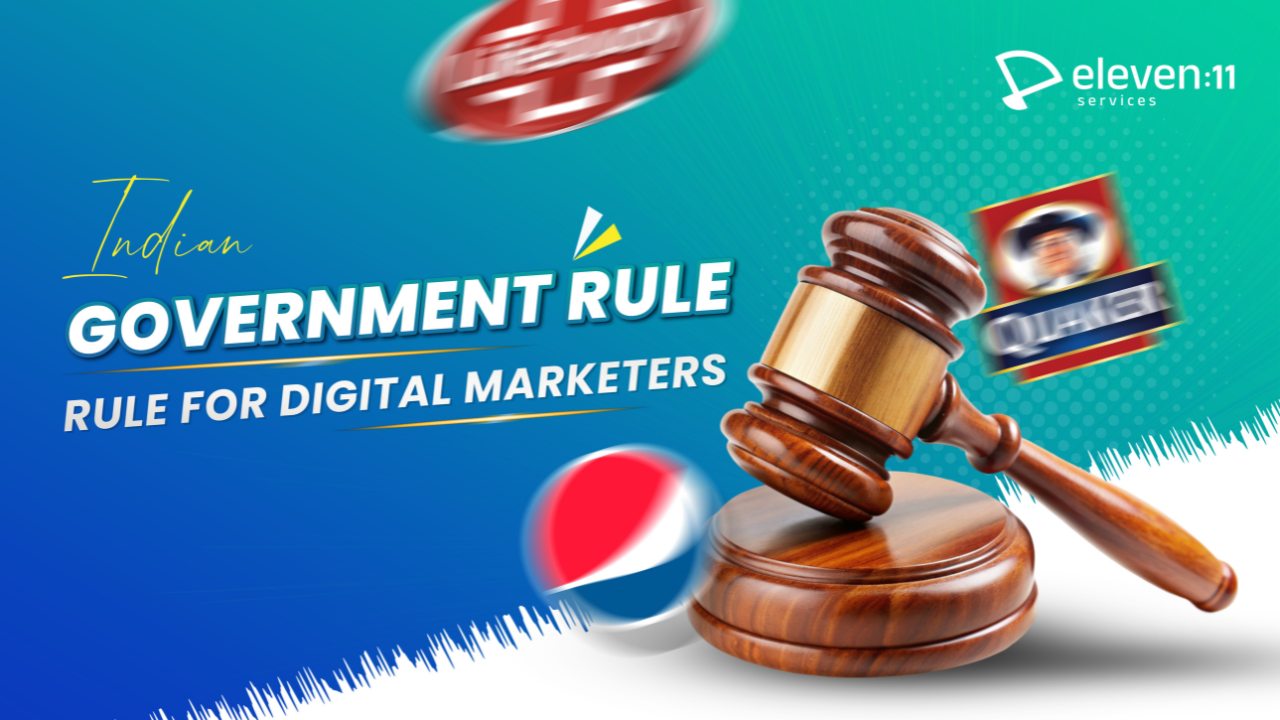Banned Ad Campaigns in India: Lessons Learned from Government Censorship

The Consumer Complaints Council (CCC) of the Advertising Standards Council of India (ASCI) banned 179 out of 208 advertisements in January 2018 following a review of complaints across various sectors.
Among the 89 upheld complaints, 27 were related to the education sector, 25 to healthcare, 15 to food and beverages, five to personal care, and 17 from other categories. Prominent companies whose ads were banned include PepsiCo India (Quaker Oats), SpiceJet, Hindustan Unilever (Lifebuoy Soap), Kraft Heinz (Complan), Britannia Industries (Britannia Whole Wheat Bread), Reliance Jio, Myntra, Suzuki Motorcycle (Suzuki Access 125), Fortis Healthcare, and ARG Outlier Media (Republic TV). These ads spanned multiple industries, including FMCGs, automotive, personal accessories, alcohol, education, and media.
The most frequent reason for upholding complaints was the exaggeration of product effectiveness and taking advantage of consumers' limited knowledge. Other issues included violations of the Drugs and Magic Remedies Act (DMR Act) and the Drugs and Cosmetics (D&C) Rules, as well as breaches of various ASCI guidelines. Additional concerns involved claims that led to significant consumer disappointment, unsubstantiated claims lacking verifiable comparative data, and misleading statements through ambiguity or implication.
For example, one advertisement featured a well-known chef endorsing an oats product from a major food company, claiming it had twice the protein and fiber content compared to cornflakes. However, the comparison was unclear, and the disclaimer was illegible, violating ASCI's guidelines on disclaimers.
In another case, a celebrity (Kareena Kapoor) endorsed a juice powder brand, asserting it contained natural fruit energy. This claim was found to be misleading and lacked substantiation regarding the product's fruit content.
Additionally, an advertisement showed a celebrity driving a car without wearing a seatbelt, depicting an unsafe practice that violated ASCI's Guidelines for Celebrities in Advertising.
- PepsiCo India Holding P. Ltd (Quaker Oats): In the advertisement, a woman describes being a play school teacher as akin to doing sprints and sit-ups all day. Celebrity chef Vikas Khanna asserts that Alisha Merchant consumes Quaker Oats, which he claims contains twice the protein and fiber, as well as immunity-boosting micronutrients and energy for sustained activity. The claim “Quaker Oats mein hai 2x More Protein and Fibre” is accompanied by a disclaimer stating “*Per serve comparison with cornflakes. Reference: Atlas of Indian Foods.” However, this disclaimer was not legible and did not meet ASCI’s guidelines regarding font size, contrast, and display duration. The commercial was deemed misleading due to ambiguity and the omission of a clear reference to this comparison in the voice-over. The assertion of “two times more protein” was found to be misleading through implication, and the ad violated ASCI’s Guidelines for Celebrities in Advertising.
- SpiceJet Ltd: The advertisement depicts a man inserting loose wires into a power socket and receiving an electric shock, showing him repeating this dangerous act. This portrayal demonstrates a blatant disregard for safety and could potentially encourage negligent behavior, particularly among minors who might mimic such dangerous actions, resulting in possible harm or injury.
- Malayala Manorama: In this ad, actor Dulquer Salman plays a driver who picks up various passengers without wearing a seatbelt. The scene where a model is shown driving without a seatbelt is considered unsafe and could mislead viewers into believing that wearing a seatbelt is unnecessary while driving.
- Hindustan Unilever Ltd (Lifebuoy Soap): The television ad creates the impression that Lifebuoy is endorsed by doctors. This is reinforced by a celebrity impersonating a doctor, who says “Doctor se suno,” and a final frame featuring four individuals in white coats, suggesting medical endorsement. Given that the Code of Medical Ethics prohibits doctors from endorsing products and the lack of market research data supporting that medical professionals generally recommend Lifebuoy, this presentation was found to be misleading due to ambiguity and implication.
- Britannia Industries Ltd (Britannia Whole Wheat Bread): The claim that the product is “New” lacks sufficient substantiation, making it misleading through ambiguity and implication. Additionally, the assertion of “100% Whole Wheat Bread” on the product's packaging is misleading due to ambiguity and omission of necessary information.
follow these regulations to safeguard your advertisements.
1. Overview of IT Act and Data Protection Regulations
Information Technology Act, 2000
The Information Technology Act, 2000 is a key law governing e-commerce, data protection, and cybersecurity in India. For digital marketers, this act plays an important role, especially in ensuring data privacy and security while managing consumer data. Under Section 43A, businesses must adopt reasonable security practices to protect sensitive personal data. If there is a failure to implement these security measures, companies could be held liable for compensation to affected individuals.
Implications for Digital Marketers:
- Data Protection: Digital marketers often handle sensitive customer information (like names, email addresses, purchase history, etc.). The IT Act emphasizes the need for ensuring the confidentiality and integrity of this data. It also mandates businesses to take reasonable precautions against data breaches.
- Electronic Commerce: The IT Act governs electronic contracts, digital signatures, and e-commerce transactions. Digital marketers who facilitate online transactions through websites must comply with rules surrounding digital contracts and secure payments.
- Liability in Case of Breaches: If a business fails to protect user data adequately, it may face legal consequences under the IT Act. Therefore, marketers must implement secure systems for data storage, encryption, and user authentication.
Personal Data Protection Bill, 2019
The Personal Data Protection Bill, 2019 (PDP Bill) is an upcoming law designed to safeguard personal data in India. This bill focuses heavily on user consent, data localization, and providing individuals with greater control over their data.
Impact on Digital Marketers:
- Consent-Driven Marketing: Under the PDP Bill, digital marketers must obtain explicit consent from users before collecting or processing their personal information. This means no more automatic opt-ins for newsletters, cookies, or data collection. Marketers need to inform users about the purpose of data collection and allow them to choose what they consent to.
- Data Localization: The bill requires certain types of sensitive personal data (such as health or financial information) to be stored within Indian borders. This will impact international marketing campaigns that rely on global data flows, forcing marketers to adjust their data storage strategies.
- User Rights: Users have the right to access their data, modify it, and request its deletion under the PDP Bill. Marketers must ensure they provide easy mechanisms for consumers to exercise these rights, affecting how retargeting, email marketing, and personalization strategies operate.
- Transparency: Marketers are required to be transparent about how they collect, process, and use data. This includes disclosing third-party data sharing practices and ensuring that marketing efforts respect consumer privacy preferences.
The upcoming Personal Data Protection Bill will significantly change how digital marketers operate by shifting the focus toward a more user-centric approach, ensuring transparency, and putting stricter control over personal data usage.
2. Advertising Standards and Legal Compliance
ASCI (Advertising Standards Council of India) Guidelines
The ASCI plays a crucial role in ensuring advertisements across media platforms are ethical, responsible, and not misleading. Digital marketers must ensure that:
- Truthful Advertising: All ads must be accurate, factual, and not deceptive.
- Influencer Marketing: Marketers must disclose any paid partnerships, using hashtags like #Ad or #Sponsored to maintain transparency. This ensures that consumers understand when an influencer is promoting a product due to compensation.
Self-Declaration Guidelines for Advertisers (2024)
Following a Supreme Court ruling (WPC No. 645/2022), advertisers must now submit a Self-Declaration Certificate before releasing any ad. This declaration confirms that the advertisement follows all relevant rules and does not make false claims. The guidelines specify:
- Submission of detailed scripts, video/audio files, and descriptions before publishing ads.
- Covers all forms of media: print, TV, digital, and electronic platforms(Self_Declaration_Portal…).
3. Consumer Protection Act, 2019
The Consumer Protection Act, 2019 strengthens regulations around advertising and consumer rights in India. One of its primary focuses is to prevent misleading advertisements that can deceive consumers into purchasing products or services that don't meet the advertised claims.
Prohibition of Misleading Ads:
- Advertisers cannot make false or exaggerated claims about products.
- Endorsers (celebrities or influencers) can also be held liable if they promote misleading products without due diligence.
Liability for Defective Products or Services:
- Digital marketers promoting defective products or services can be held accountable.
- Businesses must provide accurate descriptions, and failure to meet these expectations could result in fines or legal actions.
Role of Consumer Courts:
- Consumers can file complaints against false advertising, and disputes are handled by consumer courts.
- These courts can demand compensation or impose penalties on advertisers who breach the law.
Case Examples:
In recent years, consumer courts have ruled in favor of consumers in cases where advertisements misrepresented product benefits, emphasizing the need for marketers to be cautious about their claims. Misleading product claims can lead to reputational damage and legal ramifications for both brands and advertisers.
4. GST and Tax Compliance in Digital Marketing
Goods and Services Tax (GST)
- GST Implications for Digital Marketing Services: Digital marketing services such as SEO, PPC, social media management, content creation, and affiliate marketing are subject to GST. The tax is typically levied at 18% for these services.
- Compliance Requirements: Businesses providing these services must ensure that they register under GST and issue GST-compliant invoices. Marketers must collect GST from clients and remit it to the government.
Tax Deducted at Source (TDS)
- TDS on Marketing Expenditure: Payments made to digital marketing service providers may require TDS deductions. Typically, this applies when large sums are involved. The standard rate is usually 10% for professional services unless otherwise specified.
- Importance of Compliance: Failing to deduct TDS can result in penalties, and non-compliance can lead to disallowance of expenses when computing taxable income.
5. Intellectual Property and Trademark Considerations
Copyright in Advertising
Digital marketers need to ensure that they do not use any copyrighted material (such as images, videos, music, or text) without permission from the rightful owner. Using such material without authorization can lead to legal disputes and penalties for copyright infringement.
Trademark Regulations
Marketers must be careful not to misuse the trademarks of other brands. Using registered brand names, logos, or slogans in ad campaigns without permission can lead to trademark infringement claims. Proper authorization is needed when referencing or using trademarks in any marketing material.
Examples of Common Infringements:
- Unauthorized Use of Music: Playing copyrighted music in video ads without permission can result in penalties.
- Brand Name Misuse: Using a competitor’s brand name in keyword bidding or in ads can lead to trademark disputes.
To avoid these issues, marketers must either use royalty-free content or acquire appropriate licenses for all materials used in their campaigns. Furthermore, they should be aware of trademark guidelines to prevent unintentional infringement.
6. Ethical Considerations and Compliance with Social Media Regulations
- In today's digital landscape, ethical considerations and compliance with social media regulations are essential for marketers and businesses. As social media platforms have become powerful tools for communication and marketing, they also bring about significant responsibilities. Adhering to established guidelines is crucial for maintaining integrity, trust, and legal compliance.
Intermediary Guidelines and Digital Media Ethics Code, 2021
- The Intermediary Guidelines and Digital Media Ethics Code, 2021, introduced by the Indian government, provides a framework for the responsible operation of social media platforms and digital media intermediaries. These guidelines mandate that platforms take accountability for the content shared by users, particularly when it comes to harmful or illegal content.
- One of the critical requirements of these guidelines is the establishment of content moderation rules. Platforms are required to implement robust mechanisms for monitoring user-generated content and ensuring the removal of posts that violate legal or ethical standards. This includes addressing hate speech, misinformation, and any content that incites violence or discrimination. Compliance with these rules not only protects users but also helps build a safer online environment.
How Social Media Regulations Impact Content and Ad Campaigns
- Social media regulations have a profound impact on how businesses approach content creation and advertising. Marketers must navigate these rules to ensure that their campaigns are compliant while still resonating with their target audiences.
- Regulations require transparency and honesty in advertising, which means that marketers need to disclose partnerships, sponsored content, and any paid promotions clearly. This transparency fosters trust with consumers and aligns with ethical marketing practices. Furthermore, marketers must be cautious in their messaging to avoid inadvertently promoting harmful or misleading content, which could lead to significant repercussions.
- The regulations also require businesses to monitor the engagement generated by their campaigns actively. If users share content that violates guidelines, brands could be held accountable for failing to act on such violations. This necessitates a proactive approach to content management, where brands implement effective monitoring and reporting systems.
Fake News and Misinformation
- The proliferation of fake news and misinformation on social media poses a significant challenge for marketers. Misinformation can spread rapidly, leading to public confusion and distrust. As such, businesses must prioritize accuracy and credibility in their communications.
- Marketers should develop clear guidelines for content creation that emphasize fact-checking and verification. By promoting accurate information and supporting reputable sources, businesses can help mitigate the spread of misinformation. Additionally, engaging in proactive communication strategies that educate consumers about identifying fake news can enhance brand credibility.
Legal Repercussions for Marketers Involved in Spreading Misinformation or Fake News
- The legal landscape surrounding misinformation is becoming increasingly stringent. Marketers found to be spreading false information or engaging in deceptive practices may face serious legal repercussions, including fines, lawsuits, and damage to their reputation.
- Governments and regulatory bodies are beginning to hold brands accountable for the content they promote, emphasizing the importance of ethical responsibility. Businesses must understand that failure to comply with these regulations can result in significant financial and reputational consequences.
- In addition to legal penalties, there are ethical ramifications to consider. Companies that spread misinformation risk alienating their audience, damaging their brand's trustworthiness, and ultimately harming their bottom line. Therefore, it is essential for marketers to be vigilant in their content practices, prioritizing accuracy and ethical considerations to protect their brand and maintain compliance with regulations.
Conclusion
Adhering to Indian government regulations, such as the Intermediary Guidelines and Digital Media Ethics Code, 2021, is essential for digital marketers in navigating the social media landscape. These regulations establish a framework for responsible behavior and promote ethical standards, fostering trust and credibility essential for building lasting relationships with audiences.
As social media becomes increasingly integral to marketing, the potential for misinformation and unethical practices grows. By following these guidelines, marketers can ensure their content is compliant and ethical, contributing to a safer online environment.
Looking ahead, new data protection laws, particularly the proposed Personal Data Protection Bill, will reshape digital marketing regulations in India. Marketers will need to adapt their strategies to prioritize transparency and data handling, as compliance will be crucial for avoiding legal issues and building consumer trust.
Businesses that embrace ethical marketing practices and compliance will likely gain a competitive edge, attracting consumers who value privacy and transparency. In summary, the evolving regulatory landscape will require marketers to remain vigilant and adaptable, fostering a culture of ethical marketing that benefits both their businesses and the community. Staying informed and proactive in compliance will be vital for long-term success in digital marketing.
Achieve Responsible Advertising Success with Eleven:11 Services
At Eleven:11 Services, we understand the critical importance of adhering to advertising regulations and guidelines to ensure your campaigns are effective and compliant. Our team of experts is dedicated to helping businesses craft advertisements that not only capture attention but also uphold ethical standards and legal requirements. We provide comprehensive support in developing clear and transparent messaging, ensuring that all claims are substantiated and compliant with regulations like the Intermediary Guidelines and Digital Media Ethics Code, 2021. By partnering with Eleven:11 Services, you can confidently navigate the complexities of digital marketing, avoid potential pitfalls, and build trust with your audience through responsible advertising practices. Let us help you create impactful ads that resonate with consumers while safeguarding your brand's reputation.
Still have questions?
Feel free to reach out to us for further assistance.


